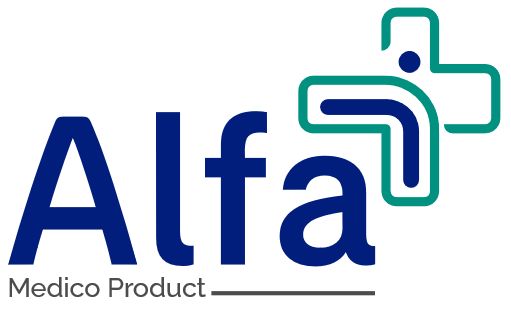A well-functioning hospital relies on more than doctors, nurses, and equipment. Behind the scenes, critical infrastructure works silently to support patient care. One such essential system is the Medical Gas Pipeline System (MGPS).
From ICUs and OTs to general wards and recovery rooms, a Medical Gas Pipeline System ensures that life-saving gases are available exactly where they are needed without delay. But what exactly is an MGPS, and why is it so vital to a hospital’s functioning? Let’s break it down.
What is a Medical Gas Pipeline System (MGPS)?
A Medical Gas Pipeline System is a centralized network of pipes, valves, source equipment, and outlets designed to supply medical gases throughout a healthcare facility. These gases include oxygen, nitrous oxide, medical air, carbon dioxide, and vacuum for suction—all of which are used for patient care, surgeries, and critical support systems.
Instead of relying on individual cylinders in every room, MGPS allows hospitals to store gas centrally and distribute it safely to different areas through a fixed pipeline system. This system is not only convenient but is also very important for clinical efficiency and quick response in times of emergency.
Key Components of an MGPS
A typical Medical Gas Pipeline System (MGPS) consists of the following elements:
- Source Equipment: Manifold banks, liquid oxygen tanks, or medical air compressors that store and generate the required gases.
- Pipeline Network: Medical-grade copper pipes that transport gases to all departments.
- Zone Valve Boxes: Installed at different areas to allow isolation of specific zones during emergencies or maintenance.
- Area Alarms: These monitor pressure levels and alert staff if gas supply goes out of range.
- Terminal Units/Outlets: These are the points where doctors and nurses connect gas equipment directly.
Each part of the MGPS works together to maintain a constant, safe, and uninterrupted flow of gas.
Why MGPS is Crucial for Hospitals
1. Continuous Oxygen Supply Saves Lives
Oxygen is the most basic and frequently used gas in every hospital and every second is critical in an emergency. A central Medical Gas Pipeline System (MGPS) ensures that oxygen reaches patients in the ICU, OT, or ER without the delays or risks associated with shifting cylinders.
2. Improves Safety and Reduces Manual Handling
Because of the ‘MGPS’, hospitals have less need to carry heavy cylinders, which is often the cause of accidents or deaths. The system is designed in such a way that the pressure always remains stable, there is no leakage, and the environment remains safe for the staff.
3. Supports Advanced Surgical and Critical Care Equipment
Medical air and vacuum systems play a major role in anesthesia machines, ventilators, and suction devices. A stable MGPS ensures that these machines operate with the correct pressure and purity.
4. Efficient Space and Workflow Management
Cylinders not only require storage space but also need regular refilling. By shifting to a Medical Gas Pipeline System, hospitals optimize space usage and improve workflow, especially in high-traffic zones like emergency rooms and operating theatres.
5. Compliance with Healthcare Standards
Accrediting bodies like NABH, HTM, and NFPA emphasize the importance of MGPS for patient safety and hospital accreditation. A properly installed and maintained MGPS demonstrates compliance with national and international standards.
Where is MGPS Used Within a Hospital?
MGPS is not limited to just the ICU or operating room. It serves multiple areas, such as:
- Neonatal Intensive Care Units (NICUs)
- Labor and delivery rooms
- Recovery rooms
- Emergency departments
- General wards
- Diagnostic labs
Even dental clinics and private practice setups are adopting small-scale MGPS for efficient and clean gas supply.
The Role of Professionals in MGPS Design and Installation
Designing and installing a Medical Gas Pipeline System is a specialized job. It requires an understanding of medical gas flow, patient load, future expansion, and safety regulations. At Alfa Medico, our team ensures that each system is custom-designed to meet the specific needs of the hospital, with high-quality materials and certified equipment.
Proper installation includes:
- Site evaluation
- Layout planning
- Selecting the right source equipment
- Leak-proof pipeline welding
- Alarm system integration
- Testing and commissioning
Only when all these elements come together can an MGPS perform reliably under real-world conditions.
Maintenance is Key to Long-Term Performance
A Medical Gas Pipeline System (MGPS) must be regularly inspected to ensure safety and efficiency. Pressure checks, outlet cleaning, alarm testing, and leak detection should be part of a hospital’s maintenance routine.
At Alfa Medico, we not only install MGPS but also offer post-installation support and preventive maintenance plans to ensure uninterrupted service.
Making Healthcare More Reliable, One Pipeline at a Time
When hospitals invest in a Medical Gas Pipeline System (MGPS), they’re not just installing pipes—they’re building a dependable infrastructure that directly affects lives. From smoother operations and cleaner environments to faster emergency response, the impact of a well-planned MGPS is felt across the entire healthcare facility.
We are committed to delivering safe, efficient, and compliant MGPS solutions to hospitals and clinics of all sizes. If you’re planning to upgrade your gas supply system or setting up a new medical facility, we’re here to help with expertise you can trust.
Interested in building or upgrading your MGPS setup? Contact Alfa Medico today to discuss your hospital’s requirements.

